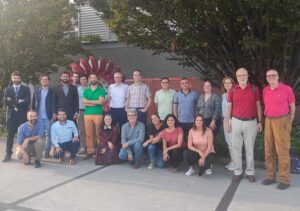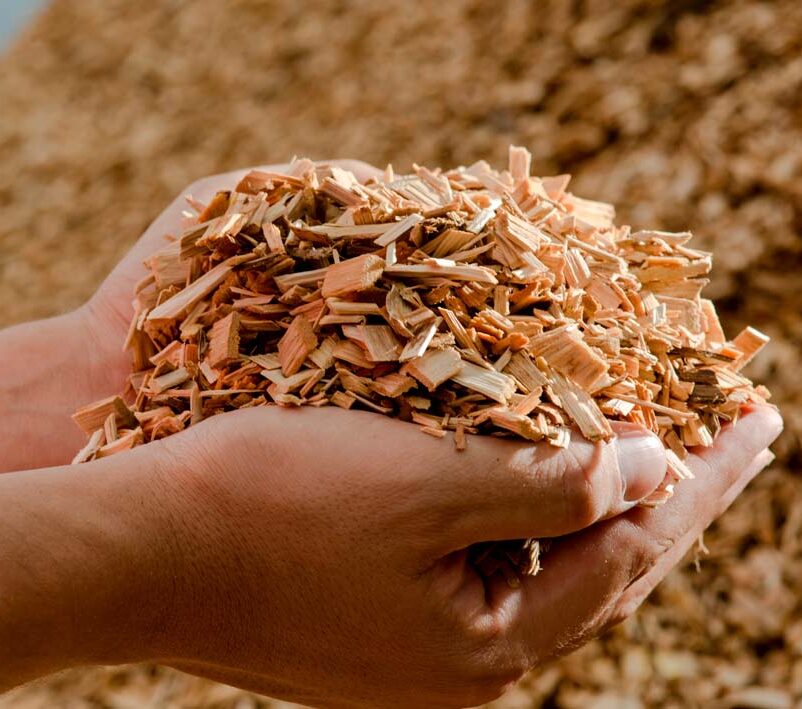The CTFC participates in the project, which aims to prepare the ground for a novel game-changing, and fully renewable process combining concentrated solar power and biomass pyrolysis.
The EU’s chemical industry urgently needs to abstain from fossil resources by switching to renewable carbon. The energy and heat needed to run industrial processes have to derive from renewable sources like wind power and solar energy. However, this decarbonization via electrification of the industry is not enough to meet the climate Paris-COP21 targets. Also, the feedstock for chemicals and materials has to come from renewable sources like recycling, CO₂ capture, and biomass.
 In July 2023, the Horizon Europe Project PYSOLO (PYrolysis of biomass by concentrated SOLar pOwer) was officially launched and will be up and running for the next four years. PYSOLO offers a solution both for decarbonization of the transport sector and industrial processes, and defossilization of the chemical industry. This will be done by combining concentrated solar power (CSP), renewable energy sources (sun and wind), and biomass (wood) pyrolysis.
In July 2023, the Horizon Europe Project PYSOLO (PYrolysis of biomass by concentrated SOLar pOwer) was officially launched and will be up and running for the next four years. PYSOLO offers a solution both for decarbonization of the transport sector and industrial processes, and defossilization of the chemical industry. This will be done by combining concentrated solar power (CSP), renewable energy sources (sun and wind), and biomass (wood) pyrolysis.
CSP is a technology in which sunlight is captured by several movable mirrors, directed, and concentrated onto a solar receiver. In particle receivers, the technology adopted in PYSOLO, the concentrated sunlight is used to heat solid particles to high temperatures. This heat can be used directly to drive downstream industrial processes, to produce electricity, or to be stored for subsequent use. By applying CSP for the heat supply necessary for the pyrolysis process and by upscaling two key units (the particle receiver and the pyrolizer), the PYSOLO technology will deliver valuable products from wood (bio-oil, pyrolysis gas, and biochar). These products will serve both energy and non-energy uses, e.g., biofuels for the transport sector and biochar for agricultural purposes (as fertilizer).
Operational flexibility to run in self-mode and to balance the electric grid
A major innovation of the PYSOLO technology is that the pyrolysis process can be operated in different modes: it can run with CSP during sunny hours, or by burning pyrogas and biochar when heat from CSP (produced or stored) is not sufficient. The PYSOLO technology can also provide balancing services to the electric grid: If required, the generated pyrogas can be converted into electricity and fed into the electric grid. On the flipside, when low-cost excess electricity from the grid is available (e.g., from wind or PV), it can be converted into high-temperature thermal energy to maintain the pyrolysis process.
Solar heat for negative CO₂ emissions
In comparison to conventional pyrolysis, in which char and pyrogas are always burnt to run the process, the PYSOLO technology comes along with economic and environmental benefits. Thanks to the use of solar heat in the biomass pyrolysis process the production of valuable products such as bio-oil, biochar, and pyrolysis gas can be maximized. Simultaneously, the associated CO₂ emissions will be minimized due to the use of renewable energy and non-fossil feedstock. Thanks to the biochar production, essentially solid carbon, the PYSOLO process represents a net negative CO2 emissions process.
Joint forces for innovation
PYSOLO was granted for about 5 M € to a consortium combining the expertise of nine partners from four EU countries under the lead of Politecnico di Milano (IT). These are the French L’Institut National de l’Environnement Industriel et des Risques – INERIS, the German Deutsches Zentrum für Luft- und Raumfahrt e.V. and the nova-Institut für politische und ökologische Innovation GmbH, three partners from Italy, Consorzio per la Ricerca e la Dimostrazione sulle Energie Rinnovabili, Politecnico di Torino and EU CORE Consulting SRL, as well as the Spanish Agencia Estatal Consejo Superior de Investigaciones Científicas and the Consorci Centre de Ciencia i Tecnologia Forestal de Catalunya. More information on the project will soon be available at http://www.pysolo.eu
Last modified: 9 October 2023










